901444
TSPO1
Sinónimos:
Diphenyl[4-(triphenylsilyl)phenyl]phosphine oxide
Iniciar sesiónpara Ver la Fijación de precios por contrato y de la organización
About This Item
Fórmula empírica (notación de Hill):
C36H29OPSi
Número de CAS:
Peso molecular:
536.67
UNSPSC Code:
12352116
NACRES:
NA.23
Productos recomendados
form
solid
Quality Level
¿Está buscando productos similares? Visita Guía de comparación de productos
General description
TSPO1 is an electon transfer layer (ETL) or hole blocking layer (HBL) in OLED devices.
Application
TSPO1 is a phosphine oxide-based blocking and host material with triplet energy excitons. It is mainly used in the formation of a blocking layer that enhances the performance of organic electronic devices like organic light-emitting diodes (OLEDs), and delayed fluorescent devices.
Storage Class
11 - Combustible Solids
wgk_germany
WGK 3
flash_point_f
Not applicable
flash_point_c
Not applicable
Certificados de análisis (COA)
Busque Certificados de análisis (COA) introduciendo el número de lote del producto. Los números de lote se encuentran en la etiqueta del producto después de las palabras «Lot» o «Batch»
¿Ya tiene este producto?
Encuentre la documentación para los productos que ha comprado recientemente en la Biblioteca de documentos.
High efficiency thermally activated delayed fluorescent devices using a mixed host of carbazole and phosphine oxide derived host materials
Kim OY, et al.
Synthetic Metals, 201(8), 49-53 (2015)
Charge transport, carrier balance, and blue electrophosphorescence in diphenyl [4-(triphenylsilyl) phenyl] phosphine oxide devices
Mamada M, et al.
Applied Physics Letters, 98(7), 34-34 (2011)
Solution processed high efficiency blue and white phosphorescent organic light-emitting diodes using a high triplet energy exciton blocking layer
Yook KS and Lee JY
Organic Electronics, 12(8), 1293-1297 (2011)
A novel pyrrolocarbazole donor for stable and highly efficient thermally activated delayed fluorescent emitters.
Kim J H, et al.
Dyes and Pigments, 136, 529-534 (2017)
Jaesang Lee et al.
Nature materials, 15(1), 92-98 (2015-10-20)
The combination of both very high brightness and deep blue emission from phosphorescent organic light-emitting diodes (PHOLED) is required for both display and lighting applications, yet so far has not been reported. A source of this difficulty is the absence
Nuestro equipo de científicos tiene experiencia en todas las áreas de investigación: Ciencias de la vida, Ciencia de los materiales, Síntesis química, Cromatografía, Analítica y muchas otras.
Póngase en contacto con el Servicio técnico
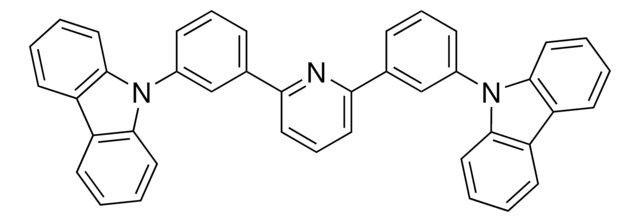

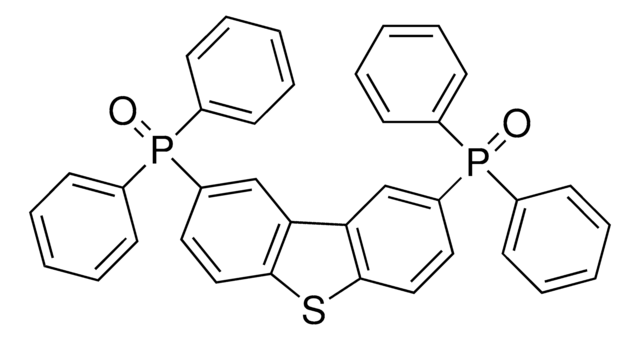
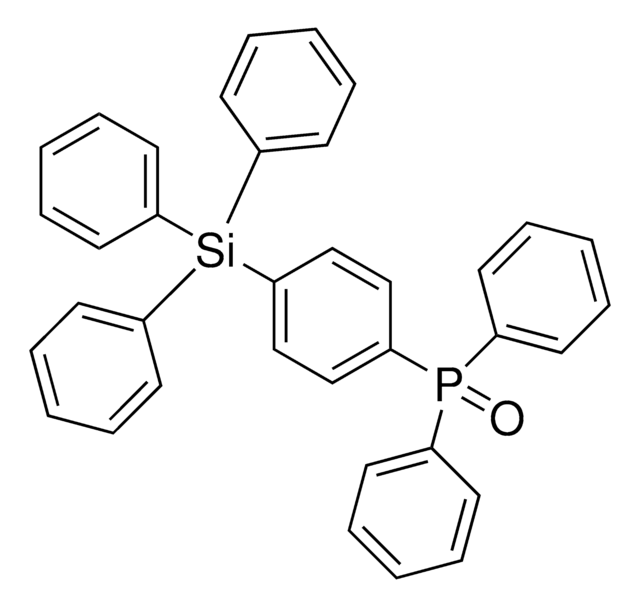
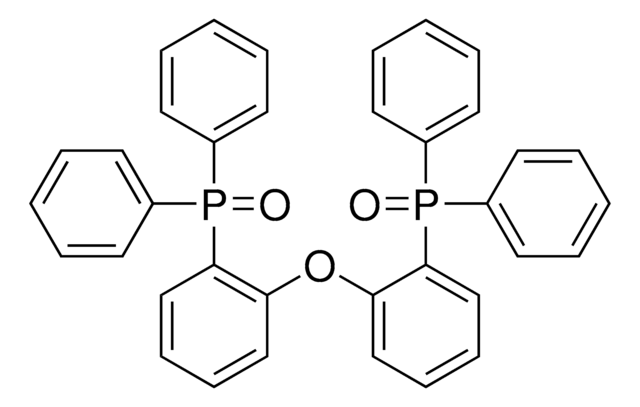
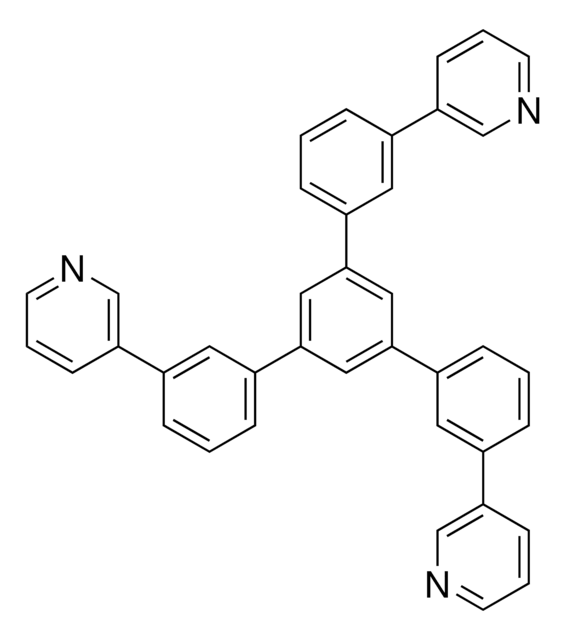

![Pyrazino[2,3-f][1,10]phenanthroline 99% (HPLC)](/deepweb/assets/sigmaaldrich/product/structures/226/341/31d3909e-6700-4a3e-bfb3-9ed1f6b66ee2/640/31d3909e-6700-4a3e-bfb3-9ed1f6b66ee2.png)
